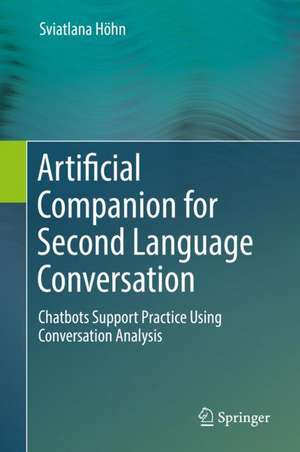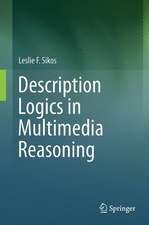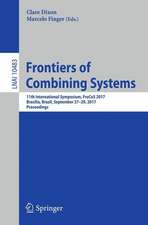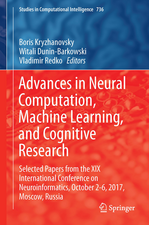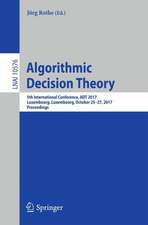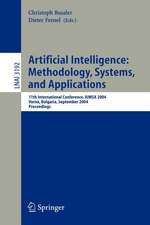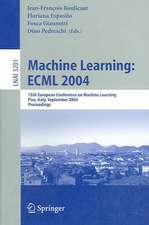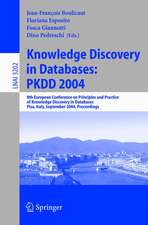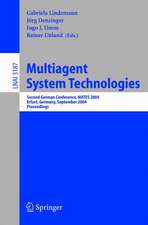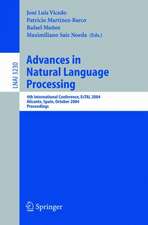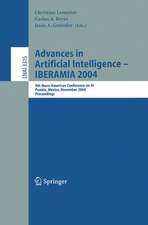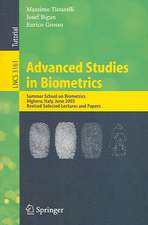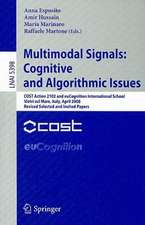Artificial Companion for Second Language Conversation: Chatbots Support Practice Using Conversation Analysis
Autor Sviatlana Höhnen Limba Engleză Hardback – 4 iul 2019
The book will be of value for researchers and engineers in the areas of computational linguistics, intelligent assistants, and conversational interfaces.
| Toate formatele și edițiile | Preț | Express |
|---|---|---|
| Paperback (1) | 1047.22 lei 6-8 săpt. | |
| Springer International Publishing – 14 aug 2020 | 1047.22 lei 6-8 săpt. | |
| Hardback (1) | 1053.48 lei 6-8 săpt. | |
| Springer International Publishing – 4 iul 2019 | 1053.48 lei 6-8 săpt. |
Preț: 1053.48 lei
Preț vechi: 1316.85 lei
-20% Nou
Puncte Express: 1580
Preț estimativ în valută:
201.61€ • 218.92$ • 169.35£
201.61€ • 218.92$ • 169.35£
Carte tipărită la comandă
Livrare economică 22 aprilie-06 mai
Preluare comenzi: 021 569.72.76
Specificații
ISBN-13: 9783030155032
ISBN-10: 303015503X
Pagini: 346
Ilustrații: XIII, 346 p. 21 illus., 12 illus. in color.
Dimensiuni: 155 x 235 mm
Greutate: 0.68 kg
Ediția:1st ed. 2019
Editura: Springer International Publishing
Colecția Springer
Locul publicării:Cham, Switzerland
ISBN-10: 303015503X
Pagini: 346
Ilustrații: XIII, 346 p. 21 illus., 12 illus. in color.
Dimensiuni: 155 x 235 mm
Greutate: 0.68 kg
Ediția:1st ed. 2019
Editura: Springer International Publishing
Colecția Springer
Locul publicării:Cham, Switzerland
Cuprins
Part I, Background.- Setting the Scene.- Learning from Others' Experience.- Part II, Using Conversation Analysis for Dialogue Modelling.- Patterns for Expert-Novice Chats.- Other-Initiated Self-repair with Linguistic Trouble Source.- Exposed Corrections.- Embedded Corrections.- Models of Learner-Error Corrections.- To Correct or Not to Correct.- Method Evaluation.- Part III, Model Validation and Future Directions.- Implementation of an Artificial Conversation Companion.- Future Research Directions.- Part IV, Supplements.- App. A, Data.- App. B, Coding Scheme for Polar Questions.- App. C, Examples.- References.
Notă biografică
Dr. Sviatlana Höhn is a researcher at the University of Luxembourg where she is building a new lab called "Artificial Companions and Chatbots" focusing on the application of conversational interfaces in education and complex technical systems. She earned her Ph.D. from the University of Luxembourg in 2016. Originally from Belarus, she qualified to teach German and English as foreign languages in her home town Vitebsk in 2001. She moved to Germany in 2003 to study Computer Science and earned her Master's in Computer Science and Linguistics. She is interested in cross-disciplinary and cross-sectoral research related to dialogue systems and interaction. She is engaged in university teaching, specifically addressing 21st century skills in her courses. She spends her free time mostly with her two kids who were 2 and 5 when this book was published.
Textul de pe ultima copertă
The research described in this book shows that conversation analysis can effectively model dialogue. Specifically, this work shows that the multidisciplinary field of communicative ICALL may greatly benefit from including Conversation Analysis. As a consequence, this research makes several contributions to the related research disciplines, such as conversation analysis, second-language acquisition, computer-mediated communication, artificial intelligence, and dialogue systems.
The book will be of value for researchers and engineers in the areas of computational linguistics, intelligent assistants, and conversational interfaces.
The book will be of value for researchers and engineers in the areas of computational linguistics, intelligent assistants, and conversational interfaces.
Caracteristici
Tool analyses participants' orientation to linguistic identities in chat Author introduces data-driven computational models for communicative Intelligent Computer-Assisted Language Learning (communicative ICALL) Interesting for researchers and engineers in the areas of computational linguistics, intelligent assistants, and conversational interfaces
